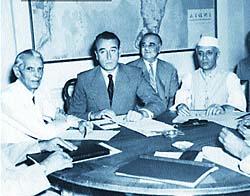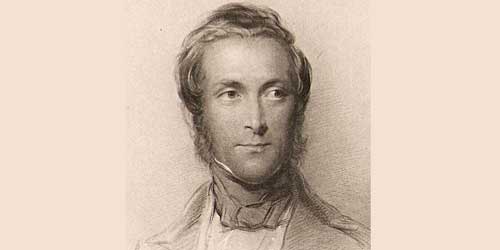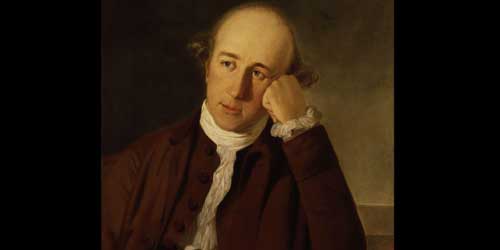The Satavahanas (230 BCE – 225 AD), were the first well known rulers of Maharashtra. Maharashtra enters recorded history in the second century BC, with the construction of its first Buddhist caves.
The name Maharashtra first appeared in a 7th-century inscription and in a Chinese traveler’s account.
This region seems to have attained prominence as early as 90 A.D.,
when king Vedishri made Junnar the capita! of his kingdom, thirty miles north of Pune.
Read Also: Sources of Islamic History
In 1526, first Mughal king, Babar, established his prominence in Delhi and soon the Mughal power spread to the southern India.
The Mughals were to dominate India till the early eighteenth century. The regions first
Hindu rulers, based in Badami, appeared during the sixth century, but the eighth- century Rashirakutas achieved a greater authority.
Maharashtra was one of the main channels that helped the emotional and devotional and bhakti school of Hinduism spread from southern to northern India, thanks here to work of Jnanesvara (1271 – 1296) whose commentary on the Bhagwad Gita, the Jnanesvari was significantly written in the day-to- day spoken language, Marathi, as opposed to classical Sanskrit.
The most famous of his contemporary poet-saints was the tailor Namdev (1270-1350), whose passionate devotional hymns caught the popular imagination.
Thukaram (1598-1650), Ramdas, both ascetic and political activist, provided the philosophical underpinning behind the campaigns of Maharashtra’s greatest warrior, Shivaji.
In the sixteenth century, Regional Muslim powers like Nizamshahi, a Dilshahi,
and Qutubshahi established their prominence in the Deccan region. One of them, Nizamshahi was located in Ahmednagar, a town 95 miles east of Pune.
Maloji Bhosle, Grandfather of Shivaji served for the Nizam as a Sardar. In 1595, Bahadur Nizam II honored him as ‘Raja’ for his courage in a battle with Mughals and gave him the estates of Pune and the fort of Chakan, near Pune.
This is generally considered as the starting point of the Maratha history.
Must Read: Important Battles in the Indian History
The Reign of Shivaji (1627- 1680) :
Shivaji Bhosle, founder of the Maratha. empire was born in 1627, in the fort of Shivaneri, 40 miles north of Pune. In 1629, Shivaji’s father Shahaji, who had succeeded his father Maloji, in Pune and Chakan, disengaged himself from the service of the Niamshahi.
Consequently, in 1635 the Nizam’s army attacked Pune. Shahaji surrendered and his estates were returned to him.
Soon, Shahaji put Dadaji Kondadev in charge of Pune, and as a caretaker for the Shivaji while he joined the Adilshahi in Bijapur.
Shivaji’s reign and conquests are one of the greatest stories of India.
During their possessions in the northern siege, his grand son prince Muhi-ul-Milan. died, so Aurangzeb changed Pune’s name to Muhiyabad, in the prince’s honor.
After Aurangzeb, Mughal power never regained its status as main power in India and Balance of power shifted towards Marathas, which was soon
to be controlled by Peshwas (Prime Ministers) of Maratha Empire.
The Peshwa Dynasty (1712-1818)
Balaji Vishwanath (1712-1721) :
In 1712, Shahu died of smallpox and his minister of peshwa, Balaji Vishwanath took over the throne.
Bajirao Peshwa (Bajirao I) (1721-1740):
Bajirao, his elder son was awarded the title of peshwa after the death of his father.
It was Bajirao’s dream to extend the Maratha empire to North India. By this time, Pune had regained its status as capital of Maratha, kingdom from Raigad. Pune remained the capital till the end of Maratha empire in 1818.
In 1734. Bajirao captured the Malwa territory in the north, and in 1739, his brother Chimnaji drove out the Portuguese from almost all Western Ghats. Bajirao died in 1740 and left three sons behind him. It was Bajirao who built the Shanivarwada the residence and ruling place for the Peshwas.
Nanasaheb Peshwa (1740- 1761) :
Nanasaheb succeeded Bajirao as Peshwa in 1740.
He had two brothers, Ragunath rao, who later betrayed the Marathas and joined hands with the British and Janardan, who died in his early youth.
Third Battle of Panipat
In 1761, the Marathas were defeated at the third Battle of Panipat against Ahmadshah Abdali, a great warrior from Afghanistan. Marathas were fighting
to save Delhi Sultanate and consequently their power in the north.
Najibuddowla was the person responsible for calling Abadali.
14th January, 1761 was the D-Day.
This was a crucial blow to the rising Maratha power from which they never recovered. They lost more than 100,000 men and dozens of important Sardars in the battle. Nanasaheb Peshwe (Balaji Bajirao) lost his brother, Sadashivrao, and also his first son, Vishwasrao, in this battle in the temple on Parvati hill in Pune.
The Maratha power was at the zenith of its glory during Bajirao’s (also called Nana Saheb Peshwa) reign, it never fully recovered from the crushing defeat at Panipat.
Thorale’ Madhavrao Peshwa (1761-1772) :
Madhavrao, his second son then look over, but had to constantly face administrative disputes with his uncle, Raghunathrao.
Madhavrao, also called ‘Thorale’ or Greatest Madhavrao, is entitled to special praise for supporting the poor and for his sense of justice.
Madadji Shinde, Nana Phadnis and Harihhau Phadke who became the key figures in the power structure after his death. He took ill in 1771 and
died in 1772 at an early age of 27, causing yet another blow to recovering Maratha power.
Narayanrao Peshwa (1772- 1773):
Narayanrao, Balaji Bajirao’s third son succeeded the.throne at Shaniwarwada as the next Peshwa.
He neither had the courage to take any bold decisions nor administrative skills and soon became.very unpopular among the people.” ¦
Swai Madhaorao Peshwa (1774-1.795) :
Raghunathrao was proclaimed the next peshwa, although he was not heir to the title. Narayanrao’s widow gave birth to a son, Sawai Madhavrao, who was legally the next peshwa.
Don’t Miss: RISE OF PESHWAS
Sawai Madhaorao’s death was the last blow to the Maratha empire and all the unity among its leaders vanished after his death causing a downfall of Peshwai in a short time.
Bajirao Peshwa (II) (1795- 1802) :
Raguriathrao died in 1782, leaving behind him, two sons, Bajirao, who in 1817 confronted the British at the Battle of Kirkee, in Pune; and the younger,
Chirrinaji Appa. Bajirao became the next peshwa after Madhorao’s death. Nana died in 1800 and Pune fell into the hands of the Sindhia’s (Shinde),
the former chiefs of Nana’s army. They remained in power for a short, while and in 1802, Bajirao reestablished himself in Pune, by signing the
treaty of Bassein with the British. This essentially ended Peshwai, establishing British supremacy in the^ region;
In 1804, General Wellesley proclaimed the Deccan in a state of chaos,. established military rule and the Peshwas remained rulers, for name’s sake.
British Raj (1818-1947) :
Between 1805 and 1811, under Colonel Close and for a short while under Mr. Russel, affairs went smoothly in Pune.
In 1811, Mr. Russel was succeeded by Lord Mountstuart Elphinstone. Bajirao was very disloyal to the British, and in November of 1817,
he declared war against them.
This battle was fought at Kirkee, that is the Cantonment area, in the east of Pune. The Peshwa fled and the power of the.country passed
from the Peshwas to the British by 1819.
The first step towards establishing a municipal
government in the city of Pune, was taken in 1856, when the Pune Municipality came into existence under the Act of 1850.
In the early 20th century the whole of India was in revolt against the British, yearning for freedom. Mahatma Gandhi launched his movement of nonviolence, and people participated by the thousands in the ‘Chale Jao’ (‘Go Away’) struggle.
Paradoxically, Pune witnessed violence when the Chaphekar
Brothers kiiled a British police officer by the name of Mr. Rand.
Maharashtra n tre present form was formed on ‘ Yay 1960. The State was fcr^ ec ::,
,Margin the district between Daman and Goa, five districts of zaT’s dominion of Hyderaoaa e gnt districts of the south of the centra.
provinces and number of small native ruled state enclaves.
The dominant physical trait of the State is its piateau character. Maharashtra ;s a o!ateau of plateaus,
its western upturned rims rising to form :^a Sar/adri Range parallel to the sea-coast and its slopes gently descend
rg towards the east and south-east. Satpuda ranges cover northern pa^t of the State, while Ajanta and Satmala ranges run
through central part of the State. Arabian Sea guards the western boundary of Maharashtra, while Gujarat and Madhya Pradesh are on the northern side.
Chhattisgarn covers the eastern boundary cx the State. Karnataka and Andnra Pradesh are on its southern side.
Also, Read:
The Revolt 1857: the First War of Independence
Impact of Religious Policy of Aurangzeb on Mughal Empire







